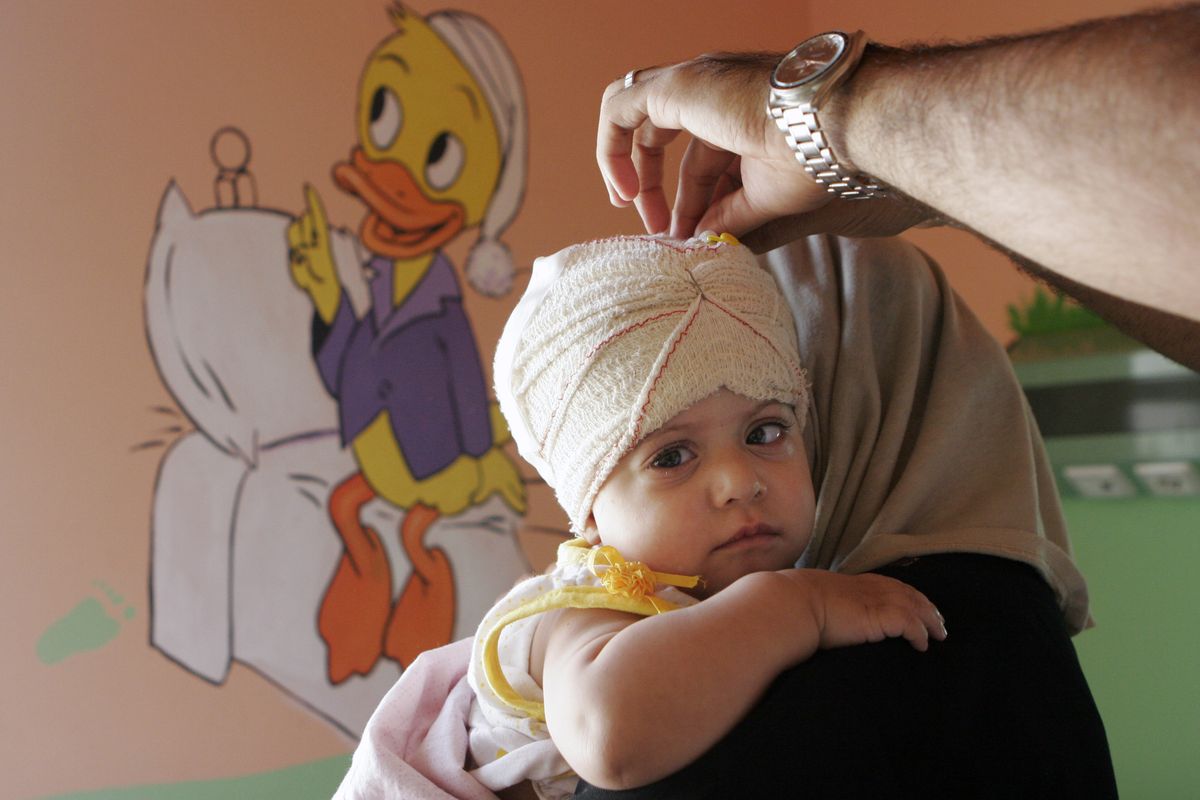Iraqi extremists rattle Baghdad

BAGHDAD – The massive car bombs that killed nearly 100 people and wounded more than 500 in Baghdad on Wednesday offered powerful new evidence of the enduring strength of Sunni extremists nearly two months after U.S. troops all but disappeared from Iraqi cities.
The early morning blasts, by far the deadliest since the June 30 withdrawal of U.S. troops from cities, raise fresh questions about whether American troops disengaged from Baghdad too quickly and whether the recent violence will lead them to try to assert more control over security, at the risk of embarrassing and unsettling Iraq’s government.
The coordinated attacks targeted prominent ministries, marking the most crippling attack on the Shiite-led government to date. Despite a recent U.S. focus on tension between Arabs and Kurds in northern Iraq, Wednesday’s strikes suggested that the sectarian fight between Shiites and Sunnis over dominance of Iraq remains far from over.
U.S. military officials in Baghdad said there is little they can do in response to the surge in violence other than pressure Iraqi Prime Minister Nouri al-Maliki to be more cautious as the Iraqi government takes control of the country’s security. Senior American officials have criticized Maliki for recent decisions that they consider overconfident and impulsive. Since the June 30 urban drawdown, his government has sharply restrained the mobility and authority of U.S. troops and his security forces have begun removing blast walls along major roads, declaring the capital safe.
Retired Col. Peter Mansoor, a senior adviser to the top American commander in Iraq in 2007 and 2008, said the Iraqi government is unlikely to ask the U.S. military to resume its presence in Baghdad.
“Regrettably, I think we can’t go back in,” he said, saying that such a move would in any event be unpalatable to most Americans and Iraqis. “The Iraqi government got ahead of itself. It is declaring the war over when it is far from over.”
The bombs, which exploded outside the Foreign and Finance ministries in heavily guarded areas of downtown Baghdad, detonated in close succession shortly after 10:30 a.m.
The deadliest blast left an enormous crater a few feet from the Foreign Ministry, which is near the Green Zone. At least 60 people were killed, mostly ministry employees, and 315 were wounded, Iraqi authorities said.
The blast targeting the Finance Ministry killed at least 35 people and wounded 228, Iraqi officials said. The explosion caused an overpass to collapse and left the building, which had only recently been repaired after a bombing in 2007, in shambles.
Maliki blamed the attacks on former officials of Saddam Hussein’s regime and vowed to revamp security measures.
In recent months, as violence has increased in northern Iraq, in part fueled by tension between Arabs and Kurds, U.S. officials have said the fault line has surpassed the Sunni-Shiite schism as the biggest threat to the country’s stability. Wednesday’s carnage led some to suggest that call was premature. U.S. officials have been urging Maliki in recent months to take more meaningful steps to reconcile with Sunnis, even those with links to Saddam Hussein’s regime, to little avail.